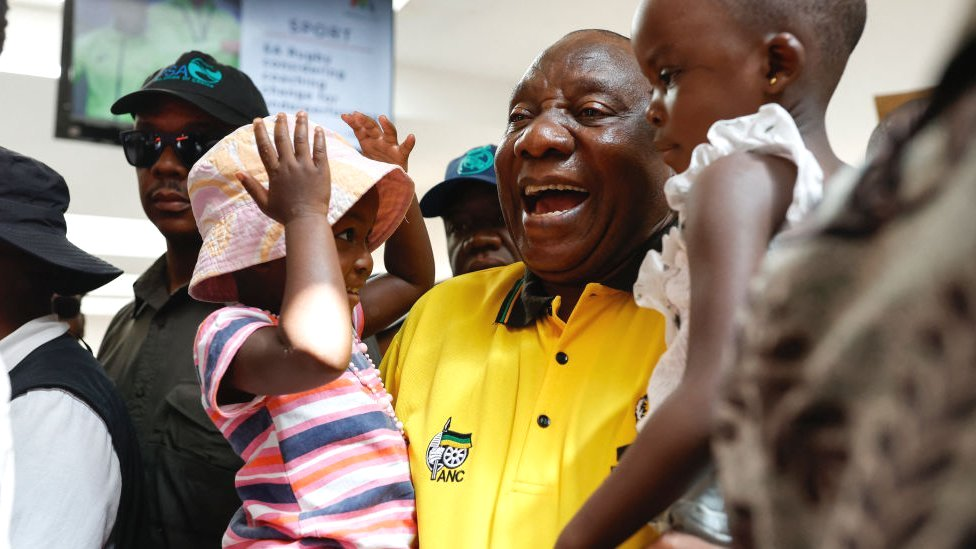South Africa’s upcoming general election, slated for late May, looms with the possibility of the ruling African National Congress (ANC) receiving less than 50% of the vote for the first time in three decades, according to some polls.
Criticism directed at the ANC, once hailed for its role in ending apartheid alongside Nelson Mandela, has eroded its support base, potentially paving the way for a coalition government.
The election is scheduled for May 29th, providing nearly 28 million registered voters the opportunity to elect representatives for both national and provincial parliaments. This marks the nation’s seventh democratic general election since the ANC took power in 1994, following the end of white-minority rule.
The ANC, led by President Cyril Ramaphosa, faces mounting challenges, including persistently high unemployment rates, economic disparities, corruption allegations, and frequent power outages, which have contributed to a decline in its popularity. Additionally, elevated levels of violent crime have undermined confidence in law enforcement.
However, the ANC asserts its commitment to addressing these issues, highlighting progress made since apartheid’s demise, such as reduced poverty levels, improved housing conditions, and enhanced healthcare access. The party has pledged to generate millions of new jobs, attract investment, bolster the private sector, and combat corruption over the next five years.
In contrast, the Democratic Alliance (DA), the primary opposition party, characterizes the nation as being in a state of crisis. It advocates for economic liberalization, including increased privatization, and has proposed initiatives such as creating two million jobs, ending power disruptions, and reducing violent crime rates by half.

